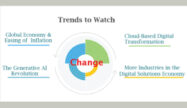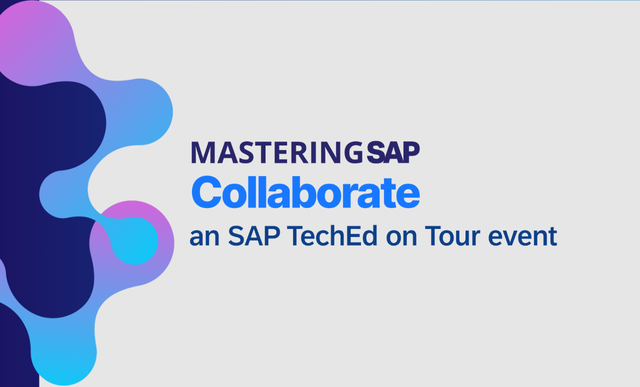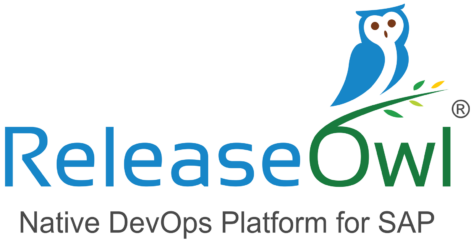SAP DevOps
Filter By
Browse By
- SAP Analytics and AI
- SAP Application Development and Integration
- All SAP Application Development and Integration
- SAP ABAP
- SAP ABAP Development Tools
- SAP ABAP Test Cockpit
- SAP API Management
- SAP BAPI
- SAP Basis
- SAP BRF
- SAP Business Application Studio
- SAP CMS
- SAP Design Studio
- SAP Development Tools
- SAP DevOps
- SAP EAI
- SAP EDI
- SAP Extension Suite
- SAP Fiori
- SAP Fiori Elements
- SAP Integration Suite
- SAP Low Code Application Development
- SAP Low Code Automation
- SAP Netweaver
- SAP Release Management
- SAP UI5
- SAP Web Application Server
- SAP Web IDE
- SAP Business Process Management
- SAP Center of Excellence
- SAP CIO
- SAP Customer Experience
- SAP Data and Data Management
- All SAP Data and Data Management
- SAP BW
- SAP BW/4HANA
- SAP Crystal Reports
- SAP Data Archiving
- SAP Data Center
- SAP Data Governance
- SAP Data Integration
- SAP Data Migration
- SAP Data Quality
- SAP Data Services
- SAP Data Strategy
- SAP Data Visualization
- SAP Data Warehouse Cloud
- SAP DMS
- SAP Document Control
- SAP EIM
- SAP ETL
- SAP ETL Tools
- SAP HANA
- SAP HANA Administration
- SAP HANA Deployment Infrastructure
- SAP HANA Studio
- SAP Master Data
- SAP Master Data Governance
- SAP MDM
- SAP Enterprise Architect
- SAP Enterprise Asset Management
- SAP ERP
- SAP Finance
- All SAP Finance
- SAP Accounting
- SAP AR AP
- SAP Asset Accounting
- SAP Billing Systems
- SAP BPC
- SAP BRIM
- SAP Cash Management
- SAP Central Finance
- SAP Controlling
- SAP COPA
- SAP Cost Center Accounting
- SAP Currency Risk
- SAP e-invoicing
- SAP FICO
- SAP Finance Automation
- SAP Advanced Financial Closing
- SAP Financial Consolidation
- SAP Financial Planning
- SAP FX Risk
- SAP General Ledger
- SAP Global Tax Management
- SAP Hyperion
- SAP Order to Cash
- SAP Payment Processing
- SAP Profitability Analysis
- SAP Rebate Management
- SAP S/4HANA Finance
- SAP SWIFT Compliance
- SAP Treasury Management
- SAP Universal Journal
- SAP Governance Risk and Compliance
- SAP Human Capital Management
- SAP Intelligent Technologies
- SAP Platform and Technology
- All SAP Platform and Technology
- SAP Business Technology Platform
- SAP Cloud
- SAP Cloud Connector
- SAP Cloud Integration Platform
- SAP Cloud Migration
- SAP Cloud Platform
- SAP Cloud Providers
- SAP Cloud Strategy
- SAP Digital Signature
- SAP Container Platform
- SAP HANA Enterprise Cloud
- SAP Digital Asset Management
- SAP Smart Forms
- SAP HEC
- SAP Digital Integration Hub
- SAP Hyperscalers
- SAP Infrastructure
- SAP Messaging
- SAP Quality and Testing
- SAP Security
- SAP Spend Management
- SAP Supply Chain Management
- All SAP Supply Chain Management
- SAP APO
- SAP Asset Management
- SAP Business Network
- SAP Digital Manufacturing Cloud
- SAP Digital Twin
- SAP EWM
- SAP IBP
- SAP Inventory Management
- SAP Label Printing
- SAP Logistics
- SAP Manufacturing
- SAP Manufacturing Automation
- SAP MES
- SAP MII
- SAP MM
- SAP MRO
- SAP MRP
- SAP Order Management
- SAP Plant Maintenance
- SAP PLM
- SAP Production Planning
- SAP S&OP
- SAP SD
- SAP SPM
- SAP Supply Chain Planning
- SAP Track and Trace
- SAP Transportation Management
- SAP System Administration
What is SAP DevOps?
Today’s technology space is defined by rapid application rollouts, upgrades, and updates to meet growing business demand to be agile, innovative, and competitive. The landscape is also characterized by an interconnected network of SAP and non-SAP software that needs to function in tandem. Agile and DevOps approaches can transform software change management in a big way with software development teams delivering change faster and more frequently, along with automation enabling testing and deployment to keep pace with rapid development.
DevOps for SAP builds upon the principles of agile development by emphasizing collaboration, openness, and automation for delivering new features and services with speed and flexibility. Limited accountability, visibility, and satisfaction are the results of traditional IT development and delivery methods that often involve separate departments working independently. However, in DevOps for SAP, eliminating departmental barriers and creating a versatile team that consistently communicates with each other is the focus. This results in collaboration between Development, QA, Operations, and the business side, and fosters effective communication, a sense of ownership, and trust. The ultimate objective is to establish a smooth and uninterrupted workflow for integrating, delivering, deploying, and enhancing services.
SAPinsider’s report on Change Management and Testing in SAP found that while the traditional waterfall model dominates for SAP ERP Central Component (SAP ECC) or SAP Business Suite (37% vs. 28%), Agile and DevOps are starting to make inroads within SAP teams (43% plan to roll them out and 38% plan to roll out DevOps orchestration tools).
SAP teams, used to multi-year development projects followed by years of maintenance, must now adapt to this rapid, multi-modal development world. Many SAP teams struggle, leading to subpar application quality, suboptimal business value, security and compliance issues, business disruption, project delays, and budget overruns.
SAP teams need a suitable SAP-specific solution, with the capability to connect SAP to external continuous integration/continuous delivery (CI/CD) tools for non-SAP software. Several DevOps tools are available to accelerate workflows and enable CI/CD from ServiceNow, Microsoft Azure DevOps, and Rev-Trac; there is also open-source software such Jira, Jenkins, and GitLab.
These tools include change requirements management, source code, version control, and configuration management, among other things. Several of these tools can work across SAP and non-SAP and offer several features to enable DevOps.
- Service Management: ServiceNow enables SAP change tickets to be stored and managed with the tickets for other systems. It’s possible to create an integration between ServiceNow and the SAP development environment using an SAP DevOps solution. DevOps for SAP orchestrates and synchronizes approvals across multiple development tracks while updating status in ServiceNow as change progresses through the pipeline.
- Agile Backlog Management: An agile tool like Jira can enable the management of user stories as the business requirements change, with the SAP DevOps platform ensuring SAP development stays in sync with the current priorities in Jira, supporting reporting on status, Kanban boards, and traditional agile retrospective reporting such as burn down charts.
- Automated Testing: By integrating SAP development through a DevOps automation platform, it’s possible to keep SAP testing aligned with non-SAP testing. Testing automation tools from vendors such as Panaya ensure that testing results are verified across pipelines, preventing the deployment of change until everything passes testing requirements.
- Pipeline Integration: Many parts of the development cycle – approving code, release to quality assurance, and ultimately deployment to preproduction and production – are part of the integrated pipeline. With DevOps tools, there is full visibility of all software development through standard tools and greater efficiency resulting from standardized processes.
Why Adopt DevOps for SAP?
With customer expectations continuously rising as digital transformations pick up pace, businesses need to be agile and flexible enough to adapt to these changes or risk losing relevance. This is particularly true for traditional software Application Lifecycle Management (ALM) methods that are manual and lack transparency. DevOps allows us to update and enhance SAP systems and effectively respond to growing business demands. DevOps for SAP enables organizations to deliver new products, features, and services to their customers while minimizing risks. DevOps practices in the SAP development lifecycle can enable significant enhancements in software delivery holistically. Organizations can streamline process implementation for innovation and technical rehabilitation with reduced effort and minimized risk. With process automation in a DevOps framework, the need for manual intervention is eliminated and risk is reduced. Organizations can use automation to redirect valuable development resources towards addressing business challenges and innovation, and to seamlessly integrate SAP development into broader software delivery pipelines.
DevOps empowers IT to swiftly adapt to evolving market conditions and meet customer expectations. This ensures that IT remains highly responsive and delivers solutions that truly address the demands of the market and end users. With DevOps, organizations can free themselves from traditional SAP release cycles and transition to a Continuous Integration/Continuous Delivery (CI/CD) approach as deploying changes becomes easy and SAP systems gain enhanced agility and responsiveness.
Join SAPinsider to access opportunities for networking and engagement in the dynamic SAP ecosystem. As a member, you will have access to a wealth of valuable resources and content tailored to SAP technologies and best practices like the latest research reports, articles, webinars, and events that will keep you informed and ahead of the curve.SAPinsider membership grants you exclusive access to in-depth analyses, expert insights, and practical guidance that will empower you to navigate the ever-evolving SAP landscape with ease. SAPinsider membership will enable you to remain one step ahead and harness the latest trends, innovations, and strategies to drive your own powerful digital transformations, optimize your SAP investments, and unlock business success.
100 results
-

Tricentis Enhances Mobile Testing with Waldo Acquisition
Reading time: 1 mins
Tricentis, a leader in continuous testing and quality engineering, acquired Waldo, a SaaS-based mobile test automation platform that requires no coding. The move aims to enhance Tricentis’ mobile testing offerings by incorporating new capabilities for native, hybrid, and web mobile application testing using virtual devices that support iOS simulators and Android emulators. Mobile applications have…
-

Zero defects, zero hypercare: Accelerate SAP updates with smart impact analysis
Reading time: 2 mins
Discover how managing SAP updates parallels the frustration of dealing with a stubborn kitchen sink clog. Like seeking a plumber’s expertise, IT professionals often face complex challenges without clear guidance. This abstract proposes a proactive approach to SAP testing, mirroring the efficiency of a skilled plumber in resolving issues before they escalate. By implementing robust…
-

Why AI is the future of effective SAP releases
Reading time: 2 mins
Unlock the potential of AI in SAP releases for accelerated development cycles, cost reduction, and enhanced software quality. Our AI-driven solutions streamline testing processes, prioritize high-value tests, and mitigate risks associated with software updates. With cutting-edge impact analysis and self-healing mechanisms, businesses achieve unparalleled efficiency and agility in their digital transformation journey. Embrace the power…
-
-

- SAP IT Automation
 Premium
Premium
Accelerated Automation with Redwood’s Workload Automation Suite
Reading time: 2 mins
The post-pandemic shift towards digital transformation and increased cloud adoption has made traditional job scheduling tools insufficient for modern IT and business demands, highlighting the need for innovative and flexible workload automation tools. Redwood Software provides a range of IT solutions with a focus on workload automation and file transfer, aimed at enabling complete business…
-

Artificial Intelligence in the World of SAP
Reading time: 2 mins
With the introduction of generative AI tools such as OpenAI’s Chat-GPT, the field of artificial intelligence has gained attention like never before. Beyond GenAI, there are several other forms and use cases of artificial intelligence that can help build future-ready enterprises. According to SAPinsider’s Benchmark report on AI & Automation in Finance, the top three…
-

There’s No Innovation Without Automation
Reading time: 4 mins
Cloud computing provides companies with access to hyper-scale compute and storage without the need for significant budgets or technical expertise. However, the notion that “Cloud is easy” can be misleading. While setting up a cloud environment is straightforward, operating at an enterprise scale is complex. The rapid evolution of tools and services, coupled with the…
-

- SAP S/4HANA
 Premium
Premium
Enhance SAP Business Processes by Adding Intelligence to Information with OpenText’s AI-powered Solutions
Reading time: 2 mins
SAP users frequently face challenges with intricate system integrations and efficient management of extensive data volumes, along with maintaining data security and regulatory compliance. OpenText has introduced an advanced suite of SAP custom solutions integrated with generative AI to transform information management within SAP processes. These solutions enable seamless integration, search, and utilization of archived…
-
-

Mid-Year Update on Key Trends to Watch
Reading time: 5 mins
As we reach the halfway point in 2023, it is a good opportunity to take another look at over-arching trends, both to update those we have already identified and to add some new ones, such as the unprecedented explosion in generative AI applications.
-

Red Hat Integration can help simplify your transformation journey
Reading time: 1 mins
The migration to SAP S/4HANA presents challenges for organizations integrating new applications, but Red Hat Integration offers essential tools for seamless connectivity and management, facilitating a smoother transition and enhanced governance in cloud-native environments.
-

- SAP ERP
 Premium
Premium
Driving Innovation in Test Automation with Worksoft and its New Leadership
Reading time: 6 mins
In today’s fast-paced digital landscape, enterprise software must constantly evolve to meet the demands of modern businesses. For this innovation to deliver the expected business outcomes, the new software and workflows need to be tested on an ongoing basis to ensure both quality and performance. Worksoft, a leading company in Enterprise Application test automation, has...…
Become a Member
Unlimited access to thousands of resources for SAP-specific expertise that can only be found here.
Become a Partner
Access exclusive SAP insights, expert marketing strategies, and high-value services including research reports, webinars, and buyers' guides, all designed to boost your campaign ROI by up to 50% within the SAP ecosystem.
Upcoming Events
-

Mastering SAP Collaborate, an SAP TechEd on Tour event
November 12 - 14, 2025
Sydney, New South Wales
Australia
View Event
Related Vendors
Your request has been successfully sent

